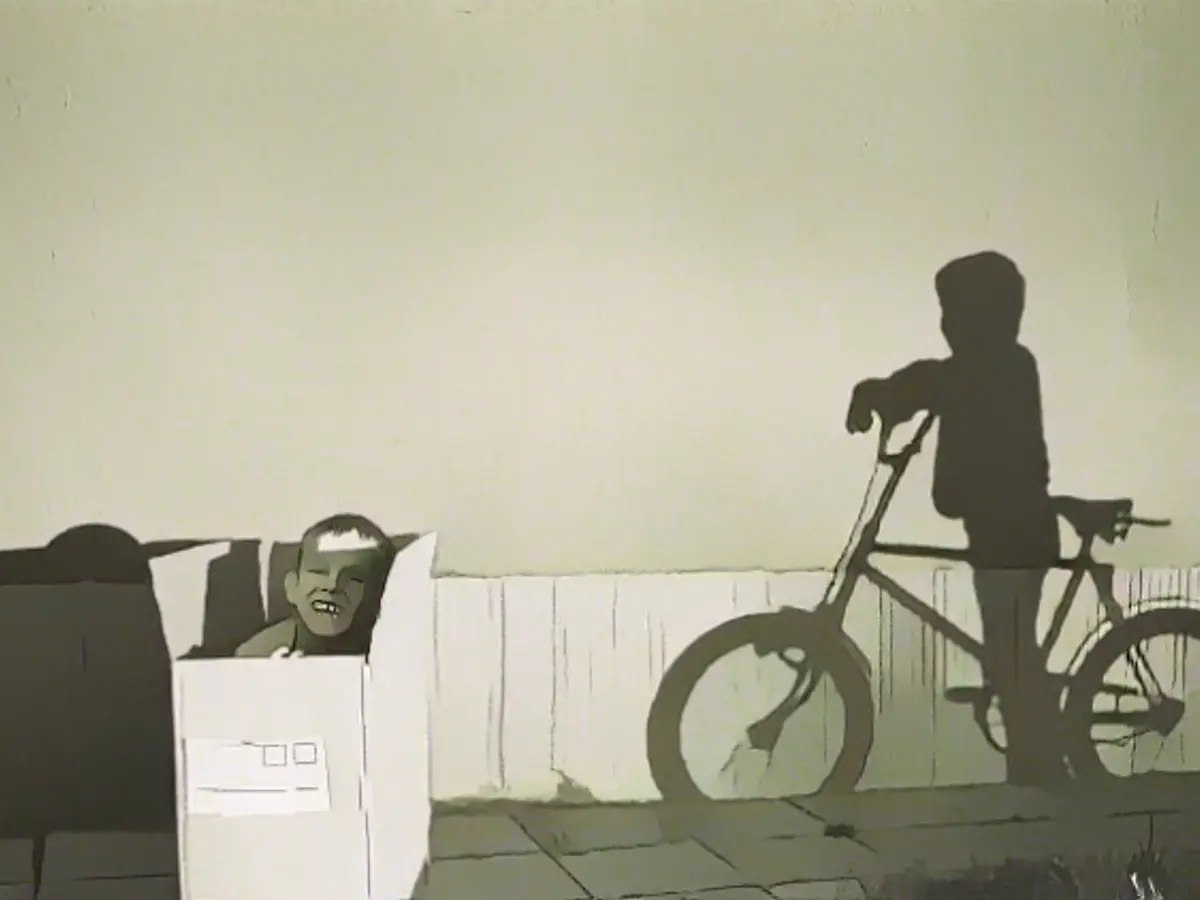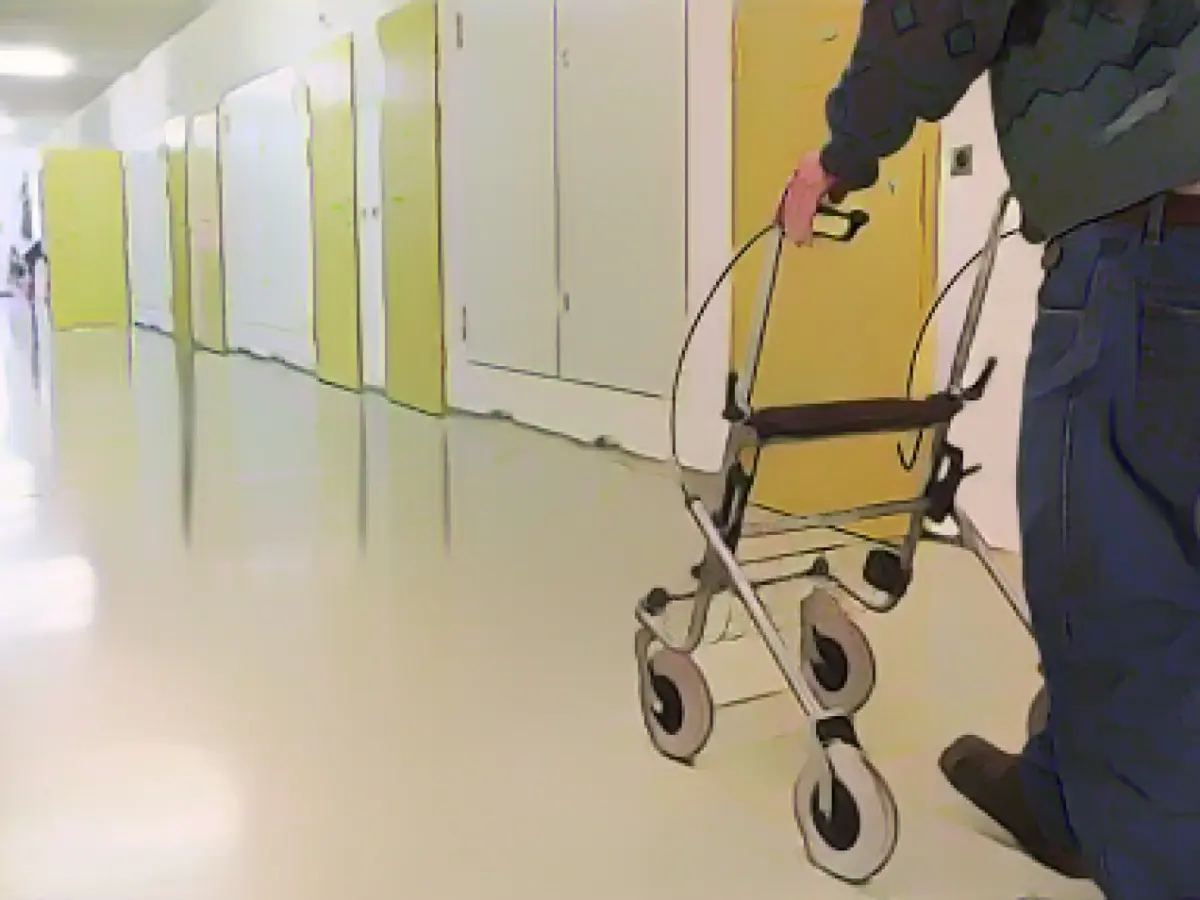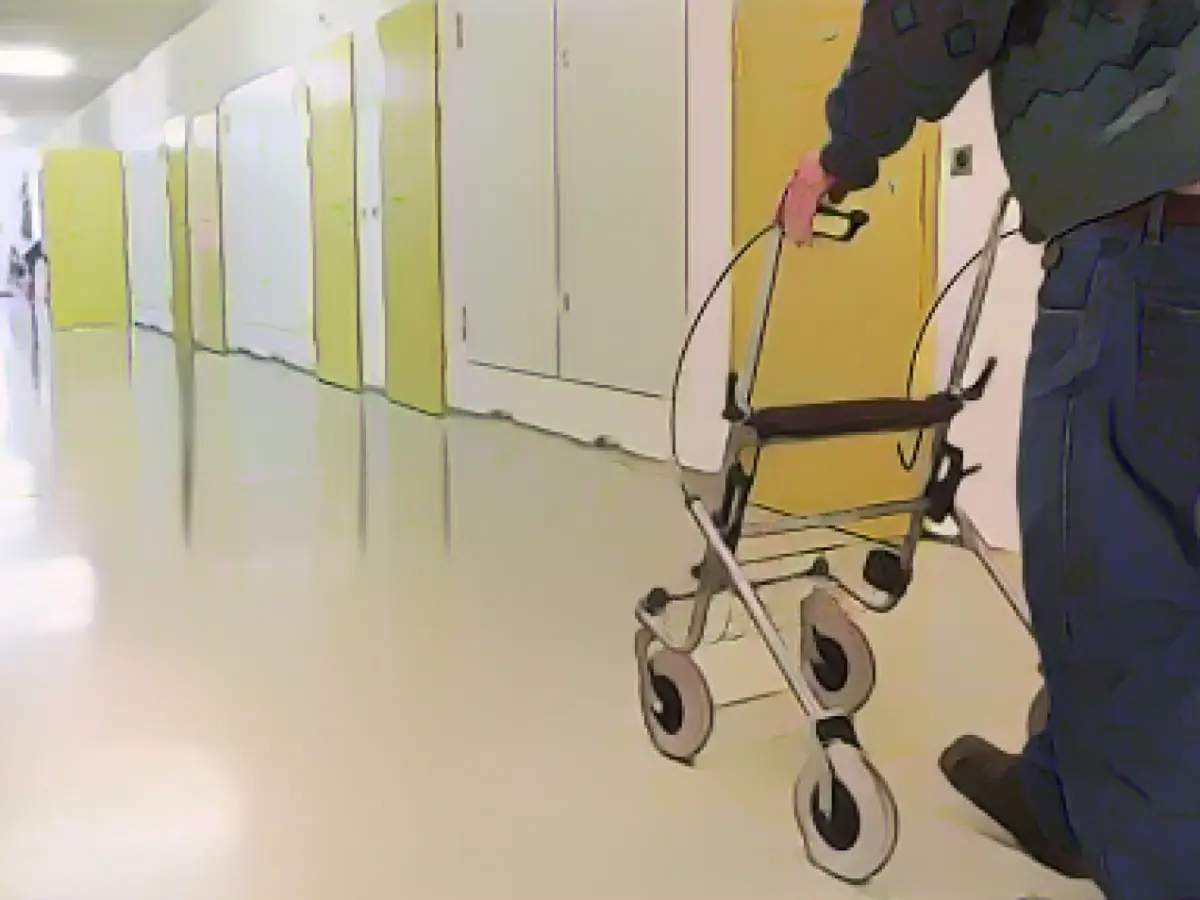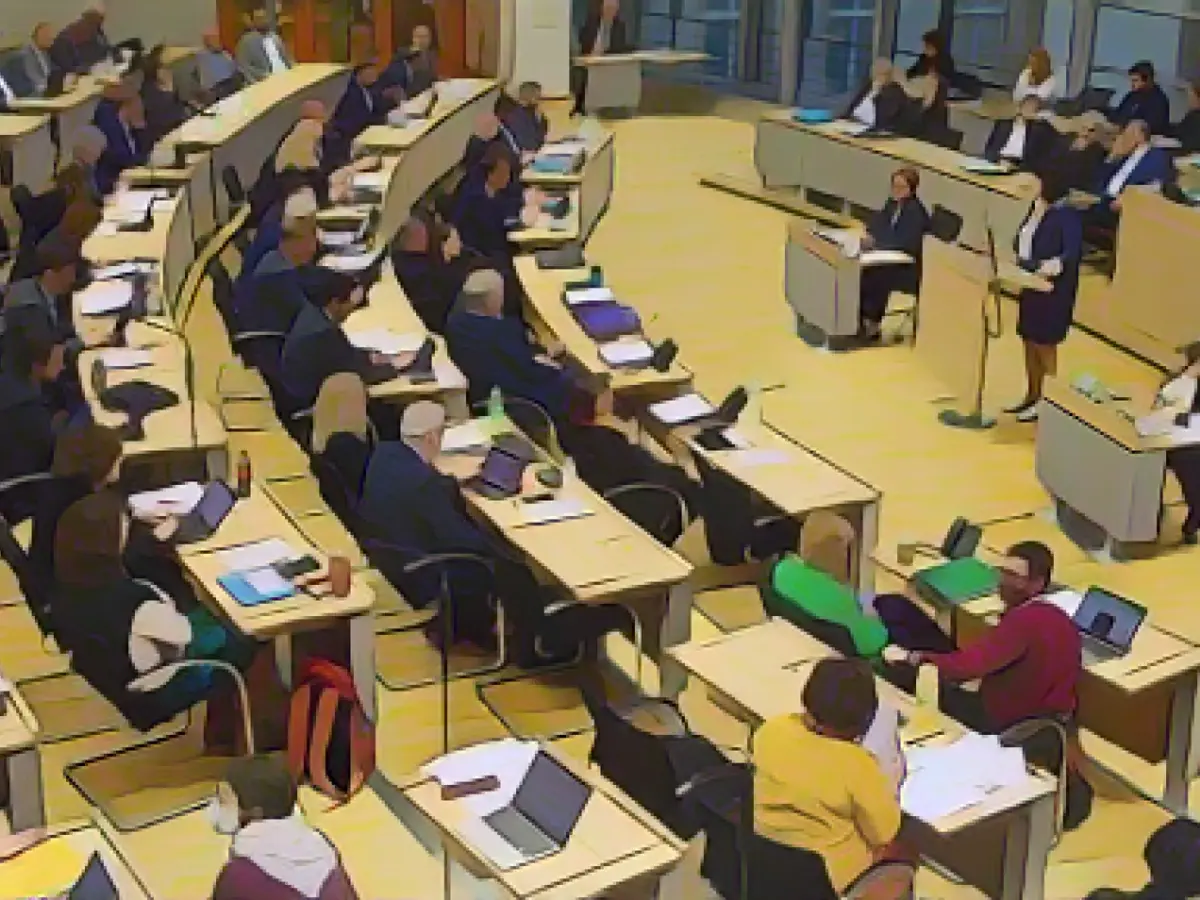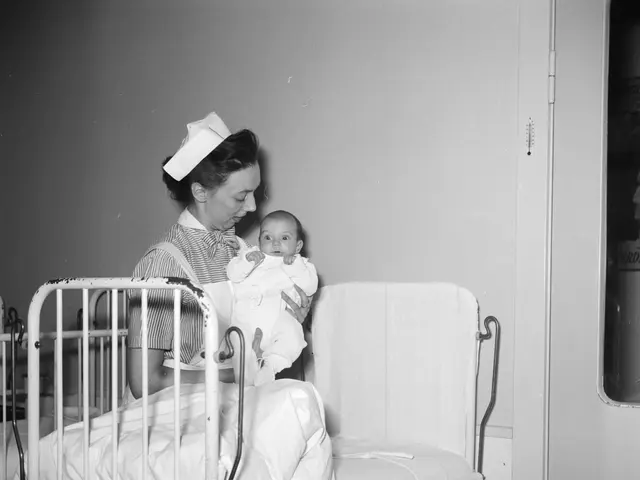Growing Up in the Ruins of Joy
From the ashes of the GDR, those born in the late 80s may have found a silver lining. Yet, the distilled rules of the fallen regime persisted without restraint. "The Possibility of Happiness" by Anne Rabe narrates a legacy that is difficult to articulate and bear.
Stine turns three years old as the Berlin Wall crumbles. The Russenberg, Karl-Liebknecht-Straße, and the scarcity of bananas and oranges fade into memory. But the breakdown of the GDR only brought about a new form of life under the same old rules.
Like Stine, Anne Rabe was born in 1986, in the former GDR district of Rostock. However, her novel "The Possibility of Happiness" recounts more than just her personal tale or that of her family's demise. Her family consists of her father, mother, Stine, and her brother Tim. And unlike other families, Stine shares, they gather not to swap stories of botched Christmas dinners or clumsy blunders but to share tales of silence.
Stine's family, guided by loyalty, mirrored the regime. Her grandfather, a fervent supporter of the SED, found solace in the same thought patterns that eventually laid waste to the nation. "The new land tasted differently, yet its rules remained the same." Stine and Tim were raised with an austerity that bordered on cruelty. Every smile was an affront, every giggle a provocation. Their mother used physical punishment in response to the smallest infractions, while their father stood by, barely flinching. "I said to Tim: 'You mustn't cry. Otherwise she'll be happy. (...) Of course Timmi started crying straight away. He was only three and hadn't gotten himself under control yet." Stine, on the other hand, was desensitized and was beaten all the harder until even her mother couldn't stomach it anymore.
Weighed Down by Guilt and Punishment
Decades later, the horrors of her childhood still haunt her. From an outsider's perspective, Stine's reunified Germany appears as a mosaic of birthday candles, family gatherings, and summer camps. But once you delve deeper, you uncover a dark labyrinth, with no escape in sight.
Every mistake, every indiscretion, every misstep was punished with brutal force. Even sexual abuse seemed insignificant compared to the normalcy of beatings, insults, and emotional neglect. Stine had been conditioned to accept it, to believe that her body was not her own. It wasn't until she became a mother herself that she realized the monstrosity of her past, and her father's role in it.
Every misstep, every mistake, every sunburn or spilt spinach was met with guilt and punishment. Even the parental questioning felt like an inquisition, a guilt trip designed to extract confessions. But Stine knew that no matter what she did, she would always be found guilty.
Desperate for answers, Stine turns to the archives, hoping to uncover the horrors of her past. But what she finds instead is mournful silence, the collective guilt that pervades her family and her fatherland.
Torment in the Shadows
The scars of the GDR have left their mark on Stine and her family. In an effort to break free from the cycle of violence and silence that has plagued her life, Stine turns to her own children, seeking to create a different future. But as a young mother, she finds herself struggling to escape the past.
Rabe describes her post-reunification generation as "small children in a pre-political state," victims of a history that was never adequately explained to them. Her novel explores how the political violence of the 20th century and the GDR have seeped into the fabric of families, relationships, and friendships, leaving a trail of destruction in its wake.
Stine reflects on her upbringing in the GDR, realizing that the rules of silence and harshness she was raised with have become deeply ingrained in her own behavior and relationships. Determined to break the cycle of violence and guilt, Stine strives to create a new legacy for her children, one built on love, compassion, and understanding.
Sources:
- Anne Rabe, "The Possibility of Happiness." (no specific citation provided)
Insights:
The novel "The Possibility of Happiness" by Anne Rabe does explore the impact of the GDR's rules and silence on a family's personal development and relationship dynamics. The narrative delves into how the political violence and oppressive environment of the GDR have left a lasting impact on families, relationships, and personal development, generations after the fall of the regime. The protagonist, Stine, struggles to break free from the legacy of violence and silence that has shaped her life and that of her family, ultimately seeking to create a new legacy for her children based on love and understanding.
